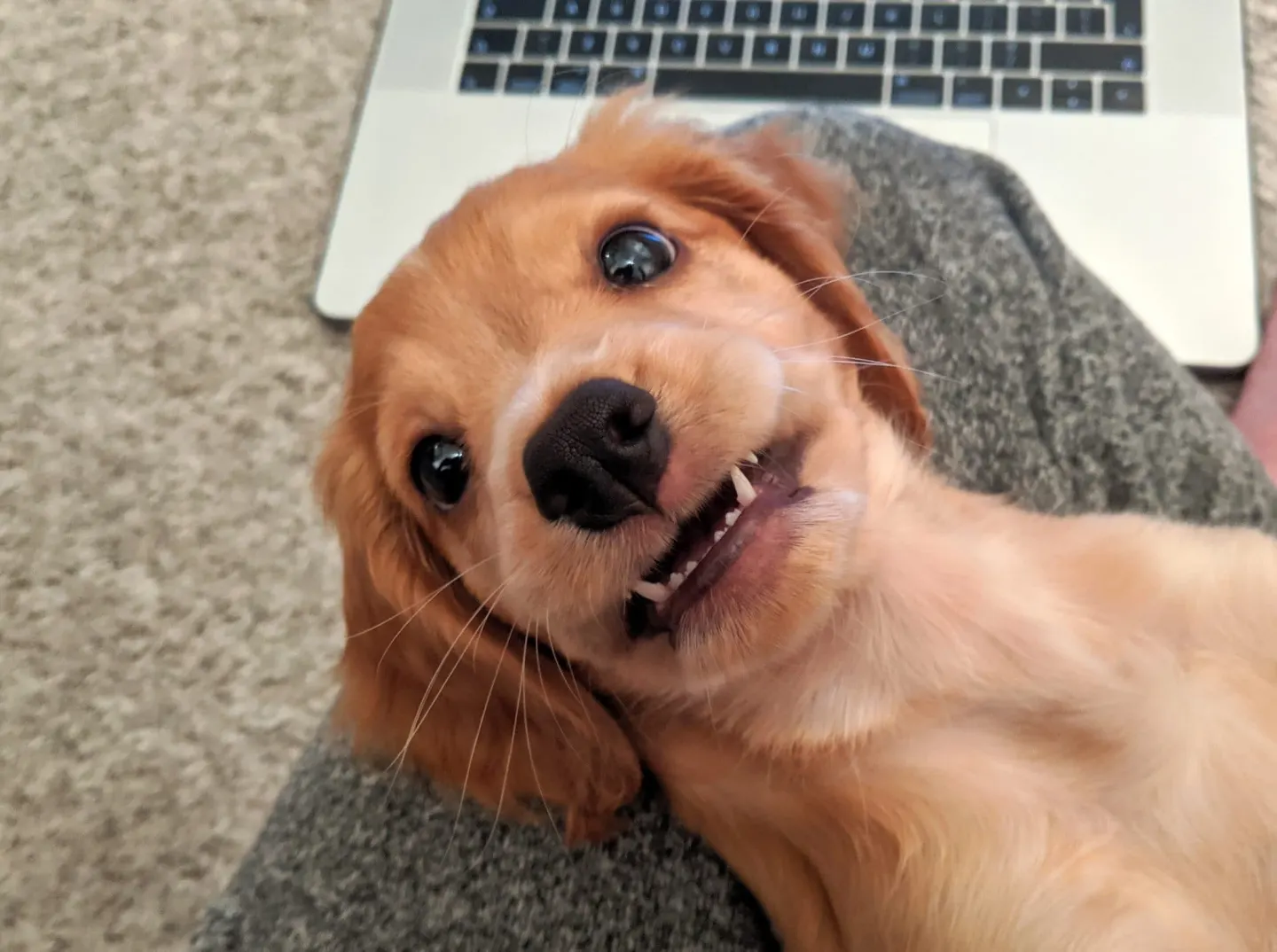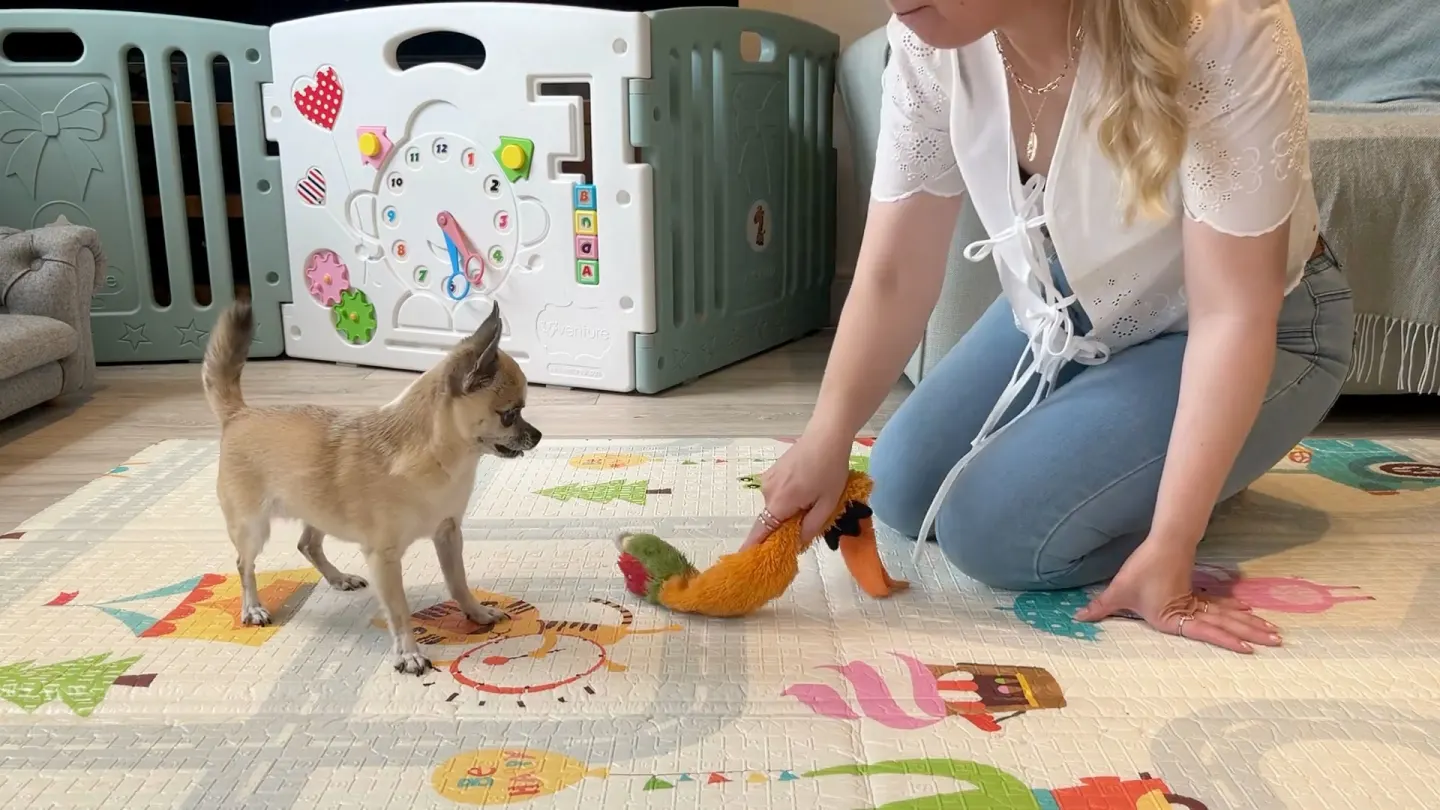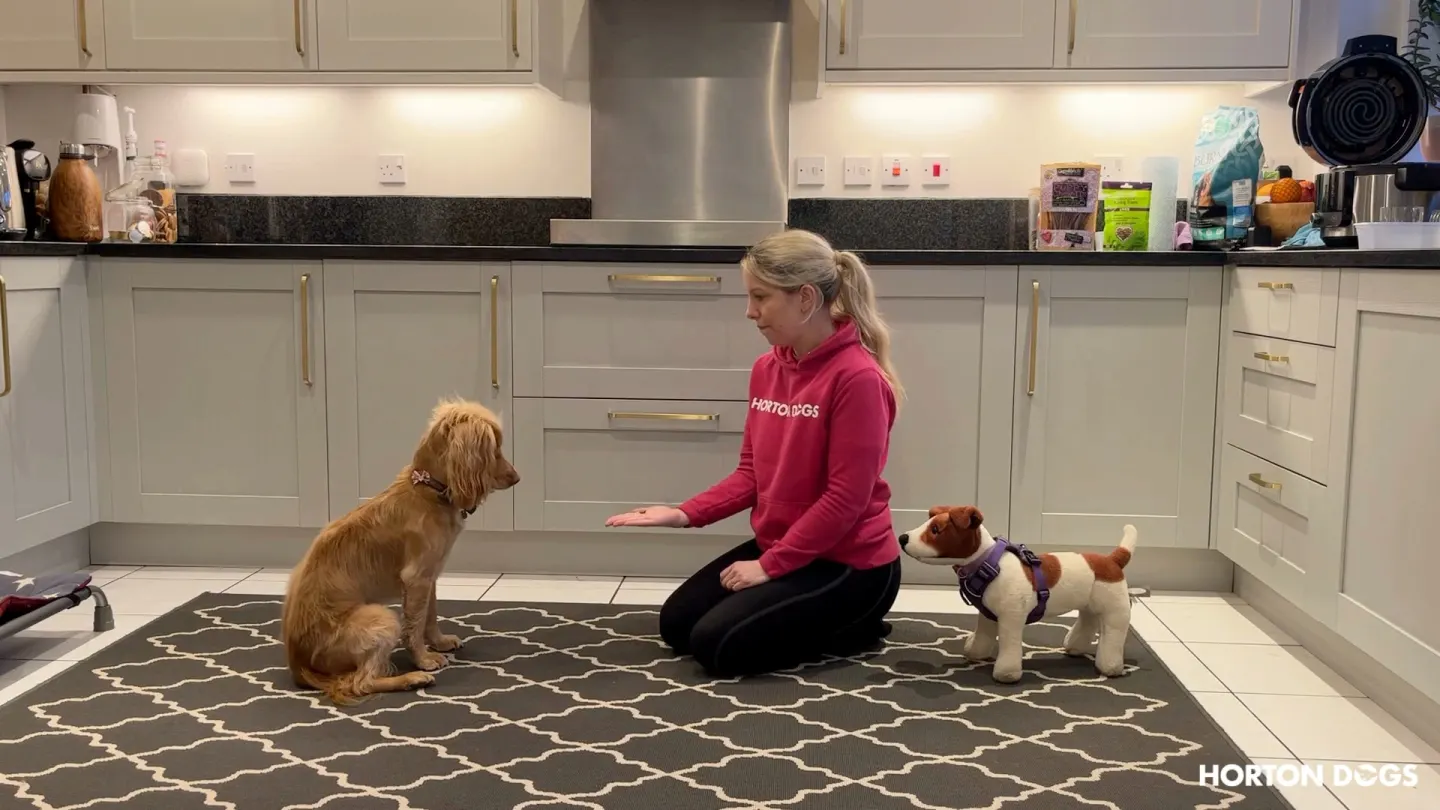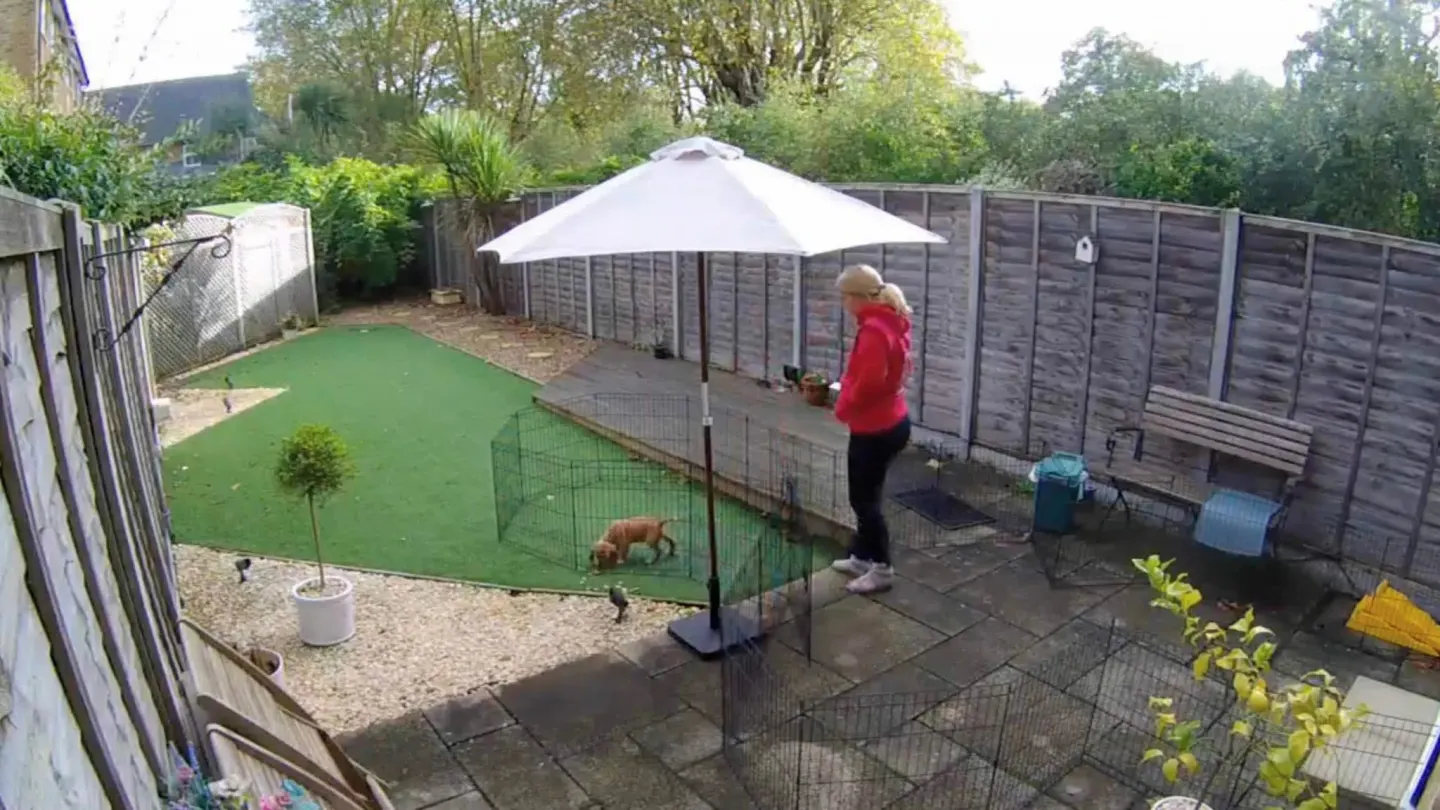
A guide to a happy puppy routine
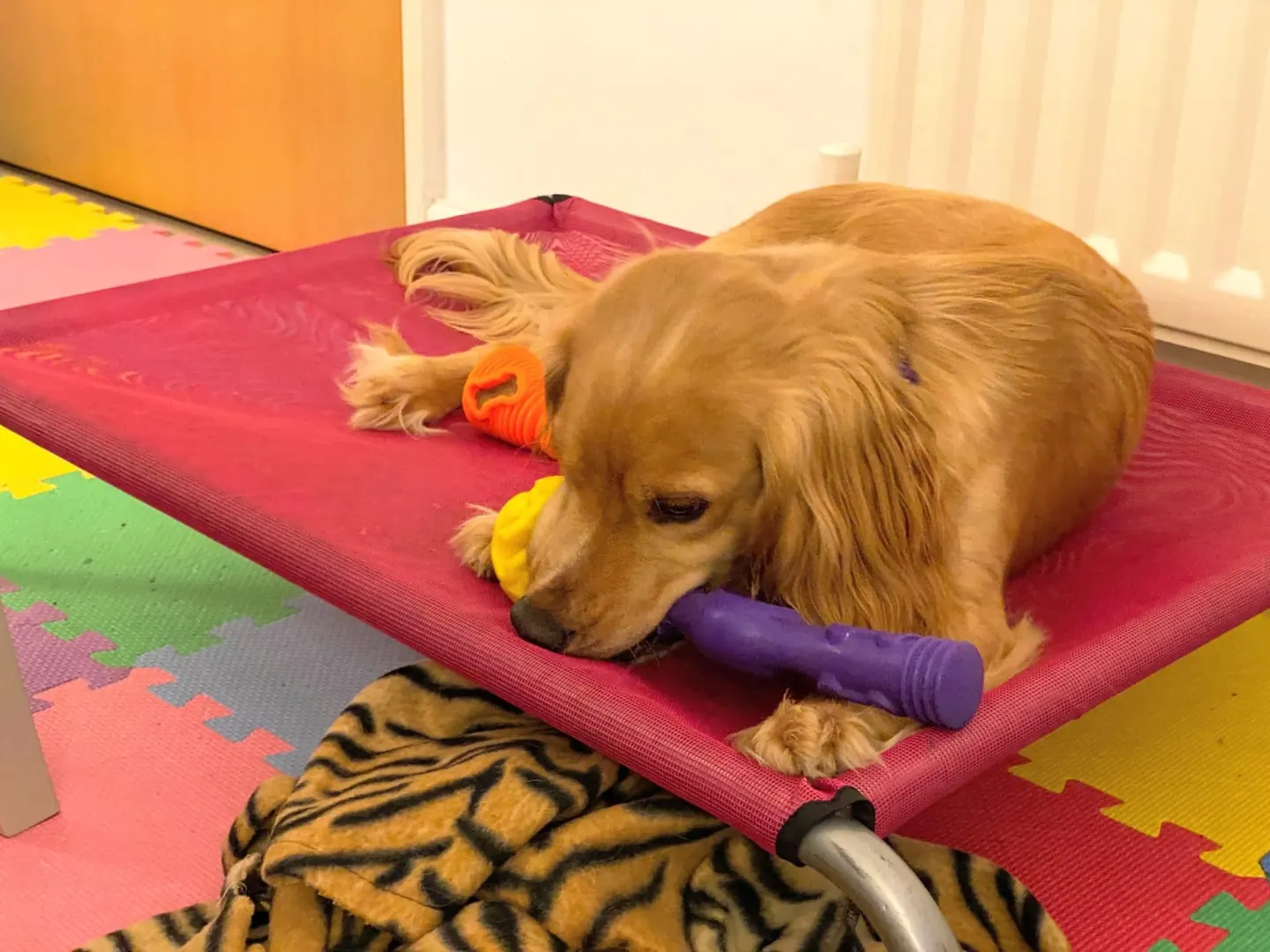
A good routine is the secret to a happy puppy and a calm household. This guide explains the key parts of a successful day and includes a handy checklist to ensure all your puppy’s needs are met.
With practice this will help you achieve:
- A calmer, more settled puppy.
- Preventing destructive puppy behaviours.
- Raising a confident, well-adjusted dog.
What you'll need
- Enrichment toys (like puzzle feeders or Kongs)
- A crate, puppy pen, or baby gates
- My free downloadable weekly checklist
Downloads
Step-by-step
- Plan for mental activity: Engage your puppy’s brain with short training games, something appropriate to chew, or by safely exploring new things. This is just as important as physical exercise for a tired and happy pup.
- Get out and about before vaccinations: You can carry them to all sorts of locations, some people use slings to help their puppy experience the world around them before they are fully vaccinated.
- Balance physical exercise: Stick to short bursts of play or walks. A good rule is 5 minutes of formal exercise per month of their age, twice a day. Over-exercising a growing puppy can damage their joints.
- Avoid the “tire them out” trap: Constantly throwing a ball for your dog doesn’t tire them out—it just makes them fitter and increases adrenaline. High-arousal activities can create a wired dog who doesn’t have an “off switch.”
- Practice the 3-minute rule: Keep exciting games short (max 3 minutes), then follow up with a calming activity like sniffing for treats or enjoying a chew. This teaches your dog how to come down from excitement, a vital life skill. This rule also applies to play with other dogs.
- Prioritise calmness and rest: A tired puppy is a bitey, barky puppy! Aim for around 18-20 hours of rest in a 24-hour period. This is vital for their growth and development.
- Incorporate alone time: Practice short absences while your puppy is calm and has something fun to do, like enjoying a chew in their pen. This builds their confidence and prevents future separation anxiety.
- Supervise all free time: When your puppy isn’t resting or in their pen, you need to be actively supervising. This allows you to prevent unwanted behaviours like chewing furniture and reinforces good toilet training habits.
Top tips for success
- Download and print the weekly checklist to help you stay on track.
- Toilet trips are needed after every activity: sleeping, eating, drinking, and playing.
- Calm mental exercise, like a short training game, is often better than high-energy physical exercise.
Members only
This resource is a special perk for our members. To join us, first is to book one of our services. If you’re already a member, log in to enjoy full access.
Feeling overwhelmed by the puppy chaos?
Juggling all of a new puppy's needs can be a real challenge. If you'd like a personalised plan tailored to your lifestyle and your puppy's specific needs, a Puppy Head Start session is the perfect way to get my one-to-one support.
